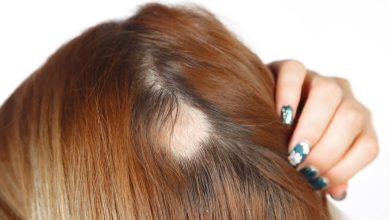Treatment for Skin Cracking
Skin cracking, also known as skin fissures or dry skin, is a common dermatological issue characterized by the formation of splits or breaks in the skin’s surface. This condition can vary in severity, ranging from minor dryness to deep cracks that may bleed and cause discomfort. Various factors, including environmental conditions, lifestyle choices, and underlying health conditions, can contribute to skin cracking. Addressing the issue involves a combination of preventive measures and treatments designed to restore skin health and prevent recurrence.
Causes of Skin Cracking
Skin cracking can occur due to several factors:
-
Environmental Conditions: Exposure to harsh weather conditions, such as cold winds and low humidity, can strip the skin of its natural oils, leading to dryness and cracking. Prolonged sun exposure can also damage the skin, contributing to cracks.
-
Dehydration: Insufficient fluid intake can result in dehydrated skin, making it more prone to cracking. Proper hydration is essential for maintaining skin elasticity and moisture.
-
Skin Conditions: Certain dermatological conditions, such as eczema, psoriasis, and dermatitis, can cause skin to become inflamed, dry, and prone to cracking.
-
Irritants and Allergens: Contact with harsh chemicals, detergents, and allergens can irritate the skin, leading to dryness and cracks. People with sensitive skin are particularly susceptible to these irritants.
-
Underlying Health Issues: Conditions like diabetes, which can lead to poor circulation and nerve damage, may contribute to skin problems, including cracking. Nutritional deficiencies, particularly in vitamins and minerals, can also affect skin health.
Preventive Measures
Preventing skin cracking involves taking steps to maintain skin health and minimize exposure to potential irritants. Some effective preventive measures include:
-
Hydration: Drinking adequate water helps maintain skin hydration from within. Aim for at least eight glasses of water daily to keep your skin supple.
-
Moisturization: Regularly applying a good quality moisturizer can help lock in moisture and create a protective barrier on the skin. Opt for products that contain ingredients like hyaluronic acid, glycerin, and ceramides.
-
Protective Clothing: In cold or windy conditions, wearing gloves, scarves, and other protective clothing can shield the skin from harsh weather and reduce moisture loss.
-
Gentle Cleansing: Use mild, fragrance-free cleansers that do not strip the skin of its natural oils. Avoid using hot water, which can further dry out the skin.
-
Avoid Irritants: Minimize contact with harsh chemicals and allergens. Choose skin-care products and detergents that are free from irritating substances.
Treatments for Skin Cracking
When skin cracking occurs, it is important to address it promptly to prevent complications. Several treatments can help heal cracked skin and restore its health:
-
Moisturizers and Emollients: Applying thick, emollient-rich creams or ointments can help repair the skin barrier and alleviate dryness. Products containing ingredients like petroleum jelly, shea butter, and lanolin are particularly effective.
-
Hydrating Masks: For severe cases of dryness, using hydrating masks or overnight treatments can provide intense moisture and promote healing.
-
Topical Medications: Over-the-counter or prescription topical treatments containing corticosteroids, antihistamines, or other anti-inflammatory agents may be recommended for conditions like eczema or dermatitis that cause skin cracking.
-
Avoiding Further Irritation: Protect the affected areas from additional irritation by avoiding activities or substances that exacerbate the problem. For instance, wearing breathable, soft clothing can prevent friction and discomfort.
-
Exfoliation: Gentle exfoliation can remove dead skin cells and improve the effectiveness of moisturizers. However, this should be done cautiously to avoid further damage to sensitive, cracked skin.
-
Medical Consultation: If skin cracking is severe, persistent, or accompanied by other symptoms like infection, it is advisable to seek medical advice. A dermatologist can provide a tailored treatment plan and investigate any underlying health issues that may be contributing to the problem.
Home Remedies
In addition to medical treatments, various home remedies can complement skin care routines:
-
Oatmeal Baths: Adding colloidal oatmeal to a warm bath can soothe irritated skin and provide relief from dryness.
-
Honey: Known for its natural moisturizing and antimicrobial properties, honey can be applied directly to cracked skin to promote healing and hydration.
-
Aloe Vera: Aloe vera gel has soothing and moisturizing properties that can help alleviate dryness and promote skin repair.
-
Coconut Oil: Coconut oil is a natural emollient that can be applied to cracked skin to enhance moisture retention and reduce inflammation.
Conclusion
Skin cracking is a common issue that can result from a variety of factors, including environmental conditions, underlying health issues, and skin care practices. By understanding the causes and implementing preventive measures, individuals can reduce their risk of developing skin cracks. In cases where cracks do occur, a combination of proper moisturization, protective measures, and, if necessary, medical treatment can help restore skin health and alleviate discomfort. Adopting a comprehensive approach to skin care and addressing any underlying health conditions can significantly improve skin resilience and prevent future occurrences of cracking.




